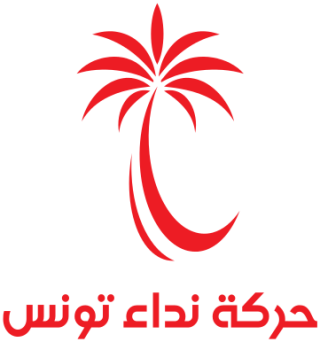Nidaa Tounes
In this article, we shall discuss the Tunisian political party Nidaa Tounes. We shall examine their history in Tunisian politics, their makeup and formation (and reasons why they formed), their electoral activity (and victory) in 2014, as well as their current activities as the leading party in the Tunisian government.
Who is Nidaa Tounes?
Nidaa Tounes is a secular party that was founded in 2012. The group was organized because they saw that in the 2011 elections, many of the votes of the seculars and leftists were being split, which in turn helped the Islamist Ennahda party come to power. Thus, they formed in order to ensure that the secularists provided a more unified option for citizens who hold secular positions.
Nida Tounes is currently the leading governing party in Tunisia. They were able to win over 37 percent of the seats in the October Parliamentary elections. Part of the reason that they were able to do so well is because they were not affiliated with the Ennahda government following the 2011 elections. Many criticized Ennahda for ineffective government rule, particularly on issues of the economy, as well as fighting terrorism. In addition, while there are some former Ben Ali members in Nidaa Tounes, “the perceived poor governance of the past three years has changed many Tunisians’ feelings about the former regime. Demand has increased for people with governance experience, which Nidaa Tounes does have” (Fakir, 2014). As Marks (2014) explains, “Nidaa benefited from disappointment in Ennahda’s post-revolutionary governance, reviving a Bourguibist model of enlightened technocratic management. That model feels familiar here in Tunisia, a country used to its leaders hailing from prominent coastal families – a decidedly different demographic than comprises the leadership of Ennahda and its main secular ally, CPR, many of whose leaders also come from Tunisia’s long-marginalised interior and south.”
Political Positions of Nidaa Tounes
As mentioned, the actors in Nidaa Tounes come from different sectors of society. However, what many of them do agree on is the limited role of Political Islam in Tunisia. Furthermore, they are quite worried about the role of Islamists in the country. However, the concern by some is regarding what lengths they may be willing to go in order to prevent Ennahda and other Islamists from strong influence in the country. For example, writing in October of 2014, Intissar Fakir writes: “…rather than advancing an inclusive vision that could draw support away from Ennahda over the long term, the party has adopted a paternalistic message in which they present themselves as the only ones capable of saving the country from incompetent governance, Islamism, and terrorism.” She goes on to say that “This platform puts Nidaa Tounes in line with many of the positions of the former Tunisian president Zine el Abidine Ben Ali’s regime—essentially promising a strong central state that takes a technocratic approach to governing—and it draws attention to the fact that many members are indeed associated with the former regime. This raises concerns about whether the party can walk the fine line between a strong, centralized government and an authoritarian, corrupt one.”
And in fact, there has been concern as to how much influence the former regime members would have in Nidaa Tounes, compared to other non-Ben Ali secularists. In fact, “Leftist fears that the RCDists would be over-represented in internal elections prevented Nidaa Tounes from holding a party congress. Instead the party has made key decisions – including nominating Essebsi as presidential candidate and selecting its parliamentary lists – in a top-down fashion, prompting a series of resignations this summer” (Marks, 2014). And, because of this, many who are critical of former members of the Ben Ali government having power have looked to Ennahda as a challenger.



